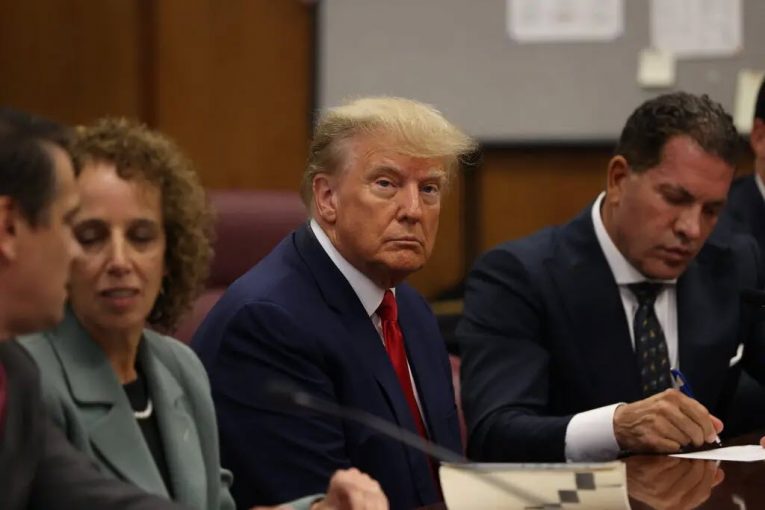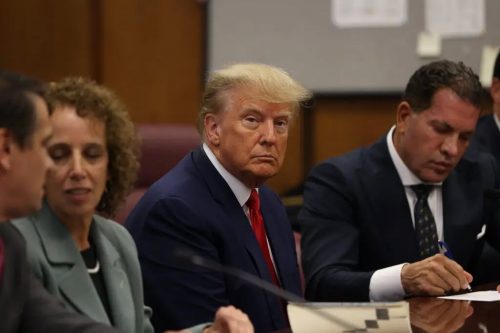

By Emeline Crowder
WASHINGTON, DC – Former President Donald Trump’s criminal convictions highlight how different state policies can create barriers for people with felony convictions to find jobs, according to Brian Nam-Sonenstein, a senior editor and researcher at the Prison Policy Initiative.
According to PPI, the former President, convicted of 34 felonies in New York, joined the company of more than 19 million people in America with felony convictions, but “Trump’s immense wealth and power will likely insulate him from the struggles most will face in securing much less prestigious jobs,” but others with felony convictions may not be so lucky.
Most people with criminal records, Nam-Sonenstein writes, don’t have “wealth and connections to fall back on…getting a job is a matter of survival, and having a record greatly diminishes their chances of success.”
The article maintains this is due to policies that “effectively disqualify and deter people with records from obtaining employment.”
According to PPI’s Nam-Sonenstein, “Nearly four out of every 10 people in state prison — most of whom had past convictions — were jobless in the month leading up to their arrest,” creating a cycle of “poverty and policing that makes everyone less safe in the end.”
As this cycle continues, more than “600,000 people return to their communities from prison each year and struggle to secure employment, housing, healthcare, and care for children,” Nam-Sonenstein notes.
PPI adds this is due to the “restrictions imposed on those with criminal records,” arguing that despite seeking jobs, people with criminal records are “likely to be rejected by employers and report unemployment at a rate five times higher than the general public.”
According to the article, while “explicit employment bans that prohibit hiring from these populations have been modified in some states in recent years thanks to tireless advocacy,” state laws still give employers “ample opportunities to reject potential workers simply on the basis of their having been convicted of a crime.”
This is particularly true, states the article, in “occupations that require professional licensing, such as bartenders, exterminators, healthcare workers, and car salesmen” because background checks are often part of the license processes for these positions.
According to Nam-Sonenstein of PPI, licensing restrictions are widespread, including, for example, in North Carolina, Mississippi, Florida, and Virginia.
The article adds even when there is not an explicit ban on people with felony convictions to obtain occupational licenses, licensing agencies are still granted “so much discretion that they can deter potential job-seekers with records from applying.
And other places do have discretionary bans designed to “target people who have felony convictions that are ‘directly related’ to the work they would be doing.”
The article concludes that “most people with criminal records have to navigate these challenges with far fewer resources and connections, and far less power, than Donald Trump.”
Nam-Sonenstein contends “rich and powerful people like Trump are insulated from the consequences of a criminal record that millions of the most vulnerable people in society — typically the primary targets of the criminal legal system — are forced to endure each day.”
Despite this, the PPI article states, “the lesson we take from Trump’s conviction should not be that the system needs to get tougher,” but the system should “lower barriers to work for the average person with a criminal record — not erect new ones.”
The PPI piece concludes there are many measures states can enact to “make life easier for people with criminal records” such as “occupational licensing reform,” banning “blanketed employer discrimination,” employing “automatic record procedures,” “temporary basic income upon release” and making “bond insurance and tax benefits widely available.”





